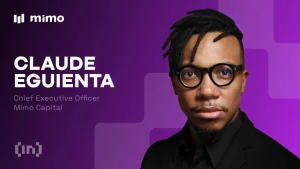Cardano Prioritizes Human Rights, Says Founder Charles Hoskinson

Cardano founder and IOHK CEO Charles Hoskinson recently spoke on the difficulty of utilizing blockchain technology in the developing world.
In a recent interview with Bloomberg highlighting Cardano’s work in Ethiopia, Hoskinson emphasized his company’s commitment to human rights. “We’re a big believer in quality human rights,” he said. For this reason, he says it wouldn’t make sense to build identity solutions in countries that “have an onerous record of very significant institutional violations.” In these instances, he believes the solutions could be abused by the state against the population.
However, Hoskinson admitted that to function the company had to be pragmatic in its approach. “You have to balance every deal. You look at first the country level and then you work your way to the facts and circumstances,” he said. “Things change –- and in some cases, you have to leave, even after you spent years working in a country.”
Hoskinson then related having to turn down a deal with a country in Central America that it had been eager to make. After noticing rule of law was deteriorating there, he said it didn’t continue to align with its values. However, despite these difficulties, Hoskinson stressed that it is these types of places that would ultimately benefit more from blockchain technology.
IOHK in Ethiopia
This question was brought up in light of IOHK’s developmental work in Ethiopia. There, Cardano is collaborating with the country’s Ministry of Education to provide a universal credentialing system for students. Student IDs will be paired with data from the Ministry’s learning management systems. Once linked, these student IDs will drive personalized teaching and, in the long term, data-driven education policies. It could also allow citizens to provide backup copies of important documents like qualifications or property ownership documents.
For students between Kindergarten and the Twelfth grade, the system will launch in the fall, Hoskinson said. So far, it’s onboarded around a million people with a total expectation of five million students. Ultimately, Hoskinson’s ambition is to compete for an entire national ID system, which would amount to 110 million people.
Disclaimer
All the information contained on our website is published in good faith and for general information purposes only. Any action the reader takes upon the information found on our website is strictly at their own risk.









